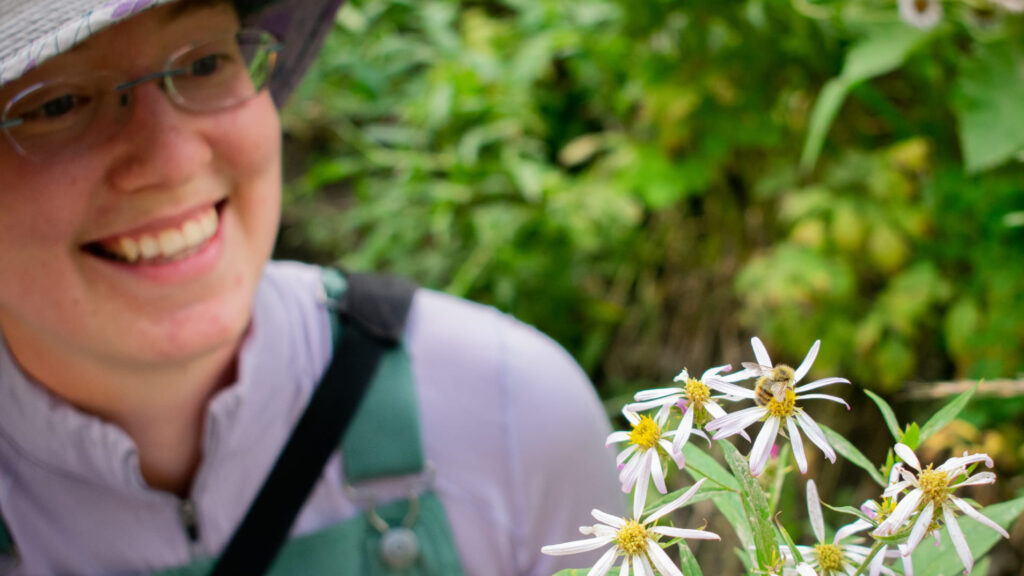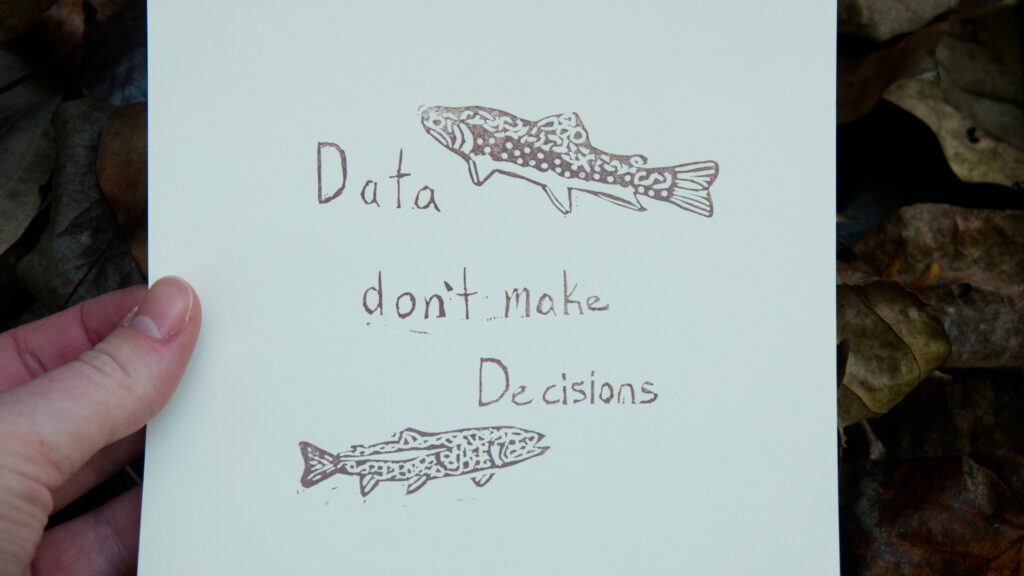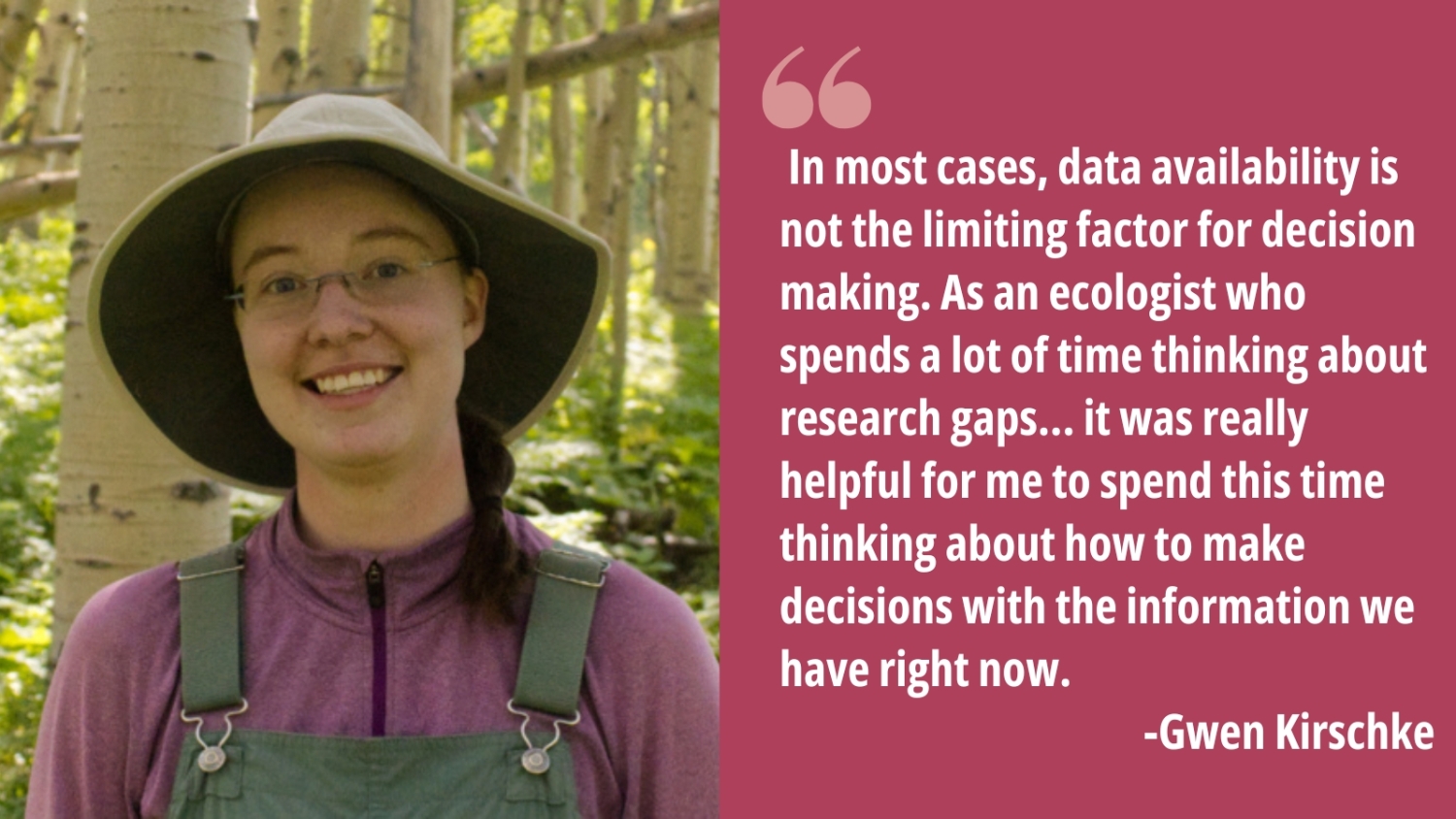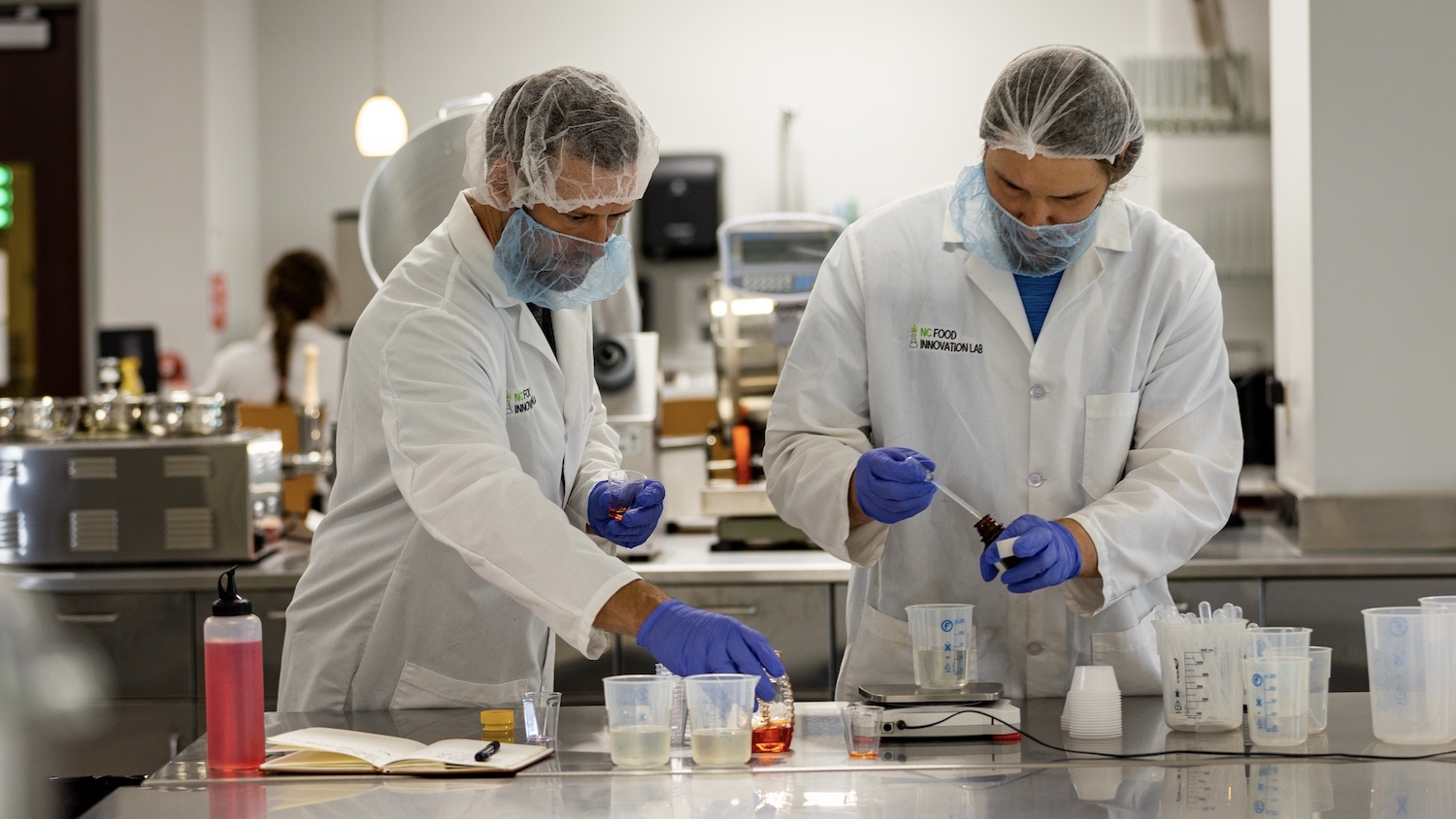2024-25 Global Change Research Fellow
PhD Student, Center for Geospatial Analytics
Advisor: Elsa Youngsteadt
About You
What do you study?
Broadly, I am interested in plants and insects, and how climate and land use change affect them. Currently, I study the spatial distribution of floral resources (nectar and pollen) throughout landscapes using a combination of field observations and remote sensing. This helps us to understand when and where there are gaps in resource availability for the pollinators that need these food sources, and how we might potentially fill those gaps.
What influenced you to go into this field of study?
I have always loved not only being outside, but careful observation of the world around me. I have found ecology to be a way to combine that work with communication to affect management. This has tangible impacts on the ecosystems that I love.
What do you think is the most pressing issue related to global change?
I am thinking a lot about how the acceleration of global change is interacting with biological and human time scales. For only one example, as I am writing this, multiple severe hurricanes have devastated communities and the ecosystems where they live along the gulf coast of Florida, which already did not have adequate time to recover from hurricanes in previous years. While we are limited in our options for accelerating ecological processes, it is our responsibility to support these communities and ensure just distribution of resources.
About Your Research

What results are you finding?
We know from previous work by myself and many others that nectar production is variable in space and time. My current project is in its initial stages, but I hope that my methods will allow us to more accurately predict the availability of floral resources, particularly with increasing access to high-resolution aerial imagery.
Who will benefit from your research?
The methods that I am testing for creating detailed floral resource maps will serve as research infrastructure for land management. Having detailed, landscape-scale maps will allow managers to identify where and in what seasons current resources can support pollinator populations, and where adding additional resources could be advantageous. Making sure that pollinators have the resources that they need means that they can continue playing their vital roles in ecosystems, including pollinating many crop species.
How would you describe your research to a 3rd grader?
Bees can only eat food that flowers make. I find places and times where there is not enough food for bees by predicting numbers of flowers and bees using pictures taken from airplanes. This means that we can pick where to plant flowers that bloom at different times of year to help bees get enough to eat.
About Your Global Change Research Fellow Experience
How do you expect the SE CASC Global Change Research Fellows Program to impact you and your work?
My work thus far, while it purposefully has management implications, has been largely academic-facing. Through my time with SE CASC I am learning to engage more directly with managers, and practicing working with them through facilitating a management workshop with the SE Regional Invasive Species and Climate Change Management Network. I hope to build on these experiences to make sure that my research is directly supporting management needs.
What advice would you give to a student that is interested in getting involved in your field?
Think carefully about what work you actually enjoy doing–there are lots of options, including developing analytical tools, applying those tools to specific management contexts, facilitating communication amongst groups, and helping to effect the management changes–and they all need to be done! Having people with varied interests and skills in the field is invaluable, and what training and experience would be most helpful depends on what you want to do.
What has been the most rewarding part or your favorite part of being a SE CASC Global Change Research Fellow?
I have really appreciated receiving practical training on how to do so many of the common but often poorly executed tasks of working in varied groups (e.g. facilitation, managing timelines for team science projects that conflict with academic and agency timelines).

Tell us about the science communications/creative project you put together during the field intensive
One of the things that I really appreciated about the field intensive at the beginning of the fellowship was that there were lots of discussions and mock-planning exercises that emphasized how, in most cases, data availability is not the limiting factor for decision making. As an ecologist who spends a lot of time thinking about research gaps, and as a generally cautious person who likes to have as much background information as possible, it was really helpful for me to spend this time thinking about how to make decisions with the information we have right now. For my creative project at the end of the field intensive, I made this block print that says “Data don’t make decisions.” I, and now a few other SE CASC members, have a print of it in our offices as a reminder that data, while important, are only one type of input into decision making processes.
Learn more about the Southeast Climate Adaptation Science Center’s Global Change Research Fellows program.
This post was originally published in SE CASC.
- Categories:



